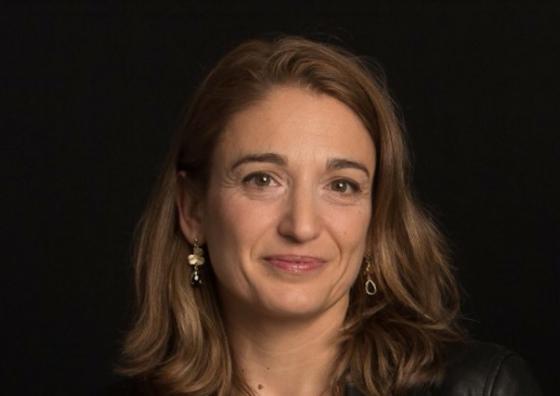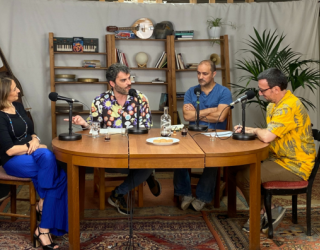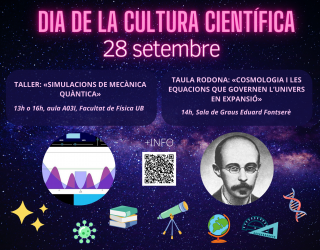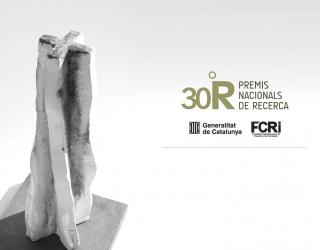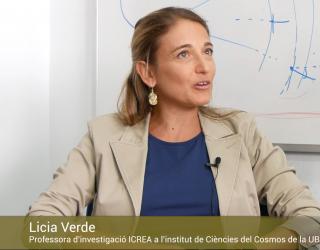The 2019 Lodewijk Woltjer Lecture is awarded to Prof. Licia Verde (ICREA at University of Barcelona, Spain) for outstanding work in cosmology, especially in the study of the cosmic microwave background and the large-scale structure of the Universe.
Licia Verde was born in Venice, Italy in 1971; she graduated in physics from the University of Padova (1996) and defended her PhDthesis at the University of Edinburgh in 2000. She then moved for postdoctoral appointments at Rutgers University and Princeton University where she was Chandra Fellow and Spitzer fellow.
There she seized the opportunity to join the WMAP science team. She became faculty at University of Pennsylvania (2004) and then, in the fall of 2007, a professor at ICREA (Institució Catalana de Recerca i Estudis Avançats) in Barcelona. Since 2010 she leads the Cosmology and Large Scale Structure Group at the Instituto de Ciencias del Cosmos of University of Barcelona. She is the recipient of two ERC IDEAS grants: Starting (2009) and Consolidator (2016). She has shared with the WMAP team the Gruber Cosmology prize (2012) and the 2018 Breakthrough prize for Fundamental Physics. She was among the Thompson Reuters ISI Highly cited researchers in 2015. She was awarded the 2017 Narcis Monturiol medal and the 2018 Premi Nacional de Recerca, that recognises a researcher who has recently contributed significantly and internationally to the advancement of a scientific discipline in any of its fields: human and social sciences, life sciences and health, engineering and technology and experimental sciences. She is a member of the Young Academy of Europe.
Prof. Licia Verde is a cosmologist who addresses questions such as origin, composition and evolution of the Universe, with special attention to statistical methodology.
Shortly after graduating from her PhD , Verde made her mark by analysing a powerful but incredibly challenging statistical property of galaxy surveys related to higher-order correlations. She showed that galaxies of the Anglo Australian Two-degrees galaxy redshift survey (the largest three-dimensional galaxy survey available then) trace the distribution of the elusive yet ubiquitous dark matter (which makes up to about 80% of the mass of theUniverse). This result indicated that the galaxy distribution can be used to study the dark matter one.
Prof. Verde then joined the science team of the Microwave Anisotropy Probe (later renamed Wilkinson Microwave Anisotropy probe WMAP). Verde participated in analysis and interpretation of the Cosmic Microwave Background data from the WMAP satellite. This analysis was pivotal in establishing what is today the standard cosmological model. In this model, the Universe is composed of dark matter and dark energy and the standard matter, as we know it, makes up to only about 5% of the Universe. The galaxies and large scale structure we see today arose from tiny initial quantum fluctuations that got amplified by gravity over 13.7 billion years of evolution.
Prof. Licia Verde then turned her attention to developing rigorous statistical tools to analyse surveys of the Universe and thus connect theoretical models to the observations. Thanks to two ERC grants she has established a vibrant and highly international research group in physical cosmology at the University of Barcelona. Under her lead, the group has contributed to some of the most important results from the Baryon Acoustic Oscillations Survey, part of the Sloan Digital Sky Survey: measurements of the expansion history of the Universe and the formation of cosmological structures as well as constraint on cosmological parameters describing structure and detailed composition of the Cosmos. Her group is now involved with two forthcoming surveys: the Dark Energy Spectroscopic Instrument survey and the Euclid mission. These surveys will provide detailed three dimensional maps of galaxies and large-scale cosmological structures covering unprecedented volume: the survey volume being a sizeable fraction of the entire observable Universe. If WMAP marked the inception of precision cosmology, the advent of such large surveys is propelling cosmology in the “big data” era.
Prof. Licia Verde has supervised 7 master students, has or is supervising 7 PhD students and mentoring 20 externally recruited postdocs. She is a promoter of Girls in Science, Technology, Engineering, and Mathematics disciplines, she is passionate about outreach and science communication especially to young ages, diversity and inclusion in the workplace and the future of scholarly communication.




